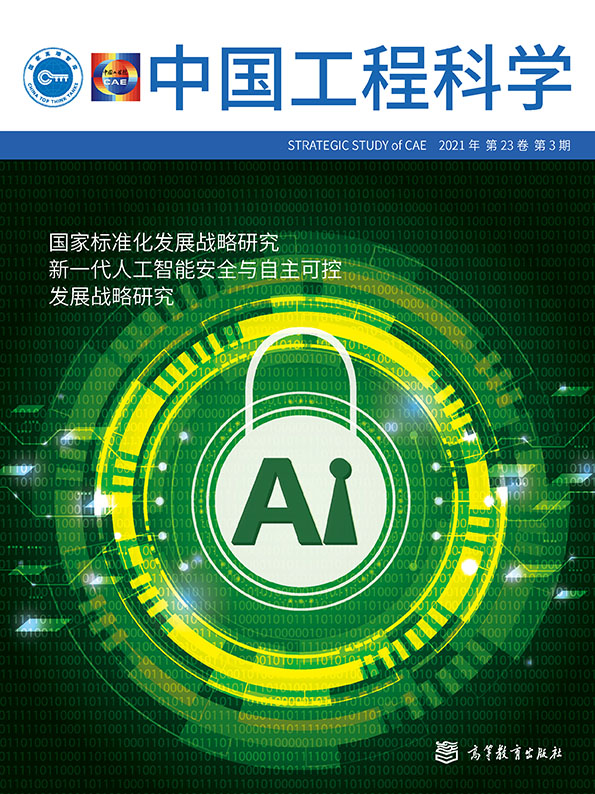《1 Introduction 》
1 Introduction
The concept of National Quality Infrastructure (NQI) was formally introduced by the United Nations Conference on Trade and Development and the World Trade Organization in 2005 in Innovations in Export Strategy: A Strategic Approach to the Quality Assurance Challenge [1]. With the continuous dissemination of NQI in related fields, academia and related international organizations are still expanding the concept of NQI in its connotation and its extent [2–5]. In November 2018, the inaugural meeting of the International Network on Quality Infrastructure (INetQI) was held in Geneva, Switzerland, where the latest definition of NQI was proposed—as the system comprising the organizations (public and private) together with the policies, relevant legal and regulatory framework, and practices needed to support and enhance the quality, safety, and environmental soundness of goods, services, and processes. NQI relies on standards, metrology, accreditation, and conformity assessment. In short, NQI is centered on technical elements such as standards, metrology, accreditation, inspection, and testing, which together support quality assurance, enhancement, commitment, transmission, and trust through mutual coordination.
The elements of NQI have been integrated into all areas of human socioeconomic activities and have become important tools for establishing and maintaining production; trade; and social, national, and even international political and economic order [6]. Developed countries and regions such as the United States, Europe, and Japan are the birthplaces of traditional industries, and they also shape the international discourse in many new industries. The internationally leading economic strength and industrial capabilities of these countries and regions are inseparable from their support of a strong NQI. Since the 18th CPC National Congress, China’s NQI core technology capability has been continuously improved; NQI has been comprehensively strengthened; and technical support institutions have been developed and expanded. However, there remains a shortage of NQI technical capacity to support industrial development in China. Especially in emerging industries such as artificial intelligence, advanced manufacturing, renewable energy, new materials, and quantum technology, China’s contribution to international standards is low, and the lack of advanced measurement technology capabilities, as well as the lack of core testing and analysis technologies, has seriously limited the long-term development of China’s strategic emerging industries. In addition, the management of NQI elements in China is fragmented, and the lack of communication and collaboration between relevant management agencies and technical institutions has severely weakened the synergy effect and integrated service capability of NQI elements.
This academic paper, resulting from the “China Standards 2035” project, analyzes the current situation, trends, and problems in the development of NQI with standards as the mainline; studies the strategic objectives of NQI in China to support high-quality development; lists the key development directions to give full play to the advantages of fundamental, supportive, and scientific NQI; and proposes relevant policy measures to give NQI the technical and organizational management capabilities to support China’s transformation from a large country to a strong country, to provide support and reference for the scientific development of NQI in the new era.
《2 The development status of NQI abroad》
2 The development status of NQI abroad
NQI reflects the quality and efficiency of a country’s economic and social development and is an important reflection of a country’s comprehensive competitiveness. The institutional environment and mechanism characteristics of NQI development vary greatly among countries, but from the perspective of global development paths, all countries have gone through the process of decentralization to unification, coordination, and integration, with more emphasis on strategy, innovation, and internationalization, to enhance their international competitiveness by improving NQI technological capabilities [7].
In terms of strategic status, many developed countries and regions have elevated the consolidation of NQI to the level of national strategy. For example, the European Union, the United States, Japan, the United Kingdom, Germany, and France have developed and released national standardization strategies to highlight the strategic position of standardization in relation to national economic development and promote the adoption of national standards as international standards [8–12]. The U.S. Congress enacted the Malcolm Baldrige National Quality Improvement Act of 1987 and established major support programs for standards and metrology at the national level [13]. Germany has implemented a national policy of “promoting brand building with quality and promoting product exports with the brand” in which metrology plays an important supporting role, and standards contribute more than 30% to its national economic growth [14]. In Japan, the “Knowledge Cluster Initiative” plan was developed to gradually integrate the functions of the elements within the industrial quality and technology base, so that mutual support can have a convergent effect [15].
In terms of laws and regulations, the NQI laws and regulations of developed countries are relatively well established and can be revised in time to meet the relevant requirements according to changes in socioeconomic and international trade competition. For example, the U.S. Constitution and the U.S. Code specifically provide for the management of metrology, and the National Technology Transfer and Advancement Act of 1995 (NTTAA 1995) was approved by the U.S. Congress in March 1996 [16]. The Act emphasizes the important role of technological innovation in promoting economic development, clarifies the coordination of standards and conformity assessment by the National Institute of Standards and Technology (NIST), and provides for the use of standards in government procurement and legislation, and participation in the development of standards. In 1999, South Korea enacted the Framework Act on National Standards, which consists of provisions on the establishment of standardization, metrology, and conformity assessment systems, to implement the provisions of Article 128 of the Constitution that South Korea shall establish a national standards system, thus building a relatively sound NQI legal system [17,18].
In terms of the operational mechanism, the market mechanism plays a decisive role in the resource allocation of NQI in developed countries. In addition to national standards, developed countries have a large number of standards developed by private-sector actors, and there is a good coordination mechanism between the two. Two observations can be made about the field of metrology. On the one hand, in the United States, the United Kingdom, Germany, and other countries, the government is responsible for maintaining the metrological traceability of measurement standards. On the other hand, private capital is encouraged to invest and make full use of social resources to meet the market demand for measurement and calibration. In the field of certification and accreditation, the main bodies behind certification agencies in developed countries include government agencies and scientific research institutes, as well as many social organizations with strong professional levels, social credibility, and financial strength. In the field of inspection and testing, the government generally does not directly interfere with the development of the operation of market-oriented third-party testing organizations operating in a fair market environment for the free development and growth of competition.
In terms of financial support, developed countries have focused on investing financial support in the NQI field. The United States implemented the Manufacturing Extension Partnership in 1988 to provide continuous financial support, NQI assistance, and training for small- and medium-sized manufacturing enterprises through a public– private partnership involving federal funding, state governments, associations, and other private funds [19]. In 2007, France started the “Small- and Medium-Sized Enterprises (SMEs) Participation in European and International Standardization Committees Guidance Funding Program” with an annual subsidy of 500 000 Euros to support SME participation in related activities through policy funding [20]. In India, Prime Minister Narendra Modi announced in 2014 the implementation of the “Zero Defect, Zero Effect” policy in the manufacturing industry, with a total investment of 518 million CNY over five years, mainly to help SMEs improve their quality level, enhance the core position of Indian manufacturing in the global supply chain, and guide the industry toward sustainable development [21,22].
In terms of the overall level of technological development, NQI in developed countries has matured after decades or even centuries of development and is well positioned to meet those countries’ socioeconomic development needs. In addition, thanks to the high level of scientific and technological development and strong technological innovation capability, the NQI development level of developed countries is generally higher and gives those countries absolute advantages in international competition. NIST drives innovation through measurement and promotes the adoption of advanced technology solutions. For example, NIST is committed to developing a range of portable, high-precision devices that help customers make accurate in-place measurements, keeping pace with the evolving product development cycle. The European Metrology Research Programme aims to integrate relevant metrology research programs across Europe to promote key European research capabilities, enhance European competitiveness, and provide technical support for the implementation of EU policies [23].
《3 The current situation of NQI development in China and the problems it faces》
3 The current situation of NQI development in China and the problems it faces
《3.1 The development status of NQI in China》
3.1 The development status of NQI in China
China has established a relatively complete NQI management system; its standards, metrology, certification and accreditation, and inspection and testing capabilities continue to improve; NQI continues to strengthen comprehensively; and the development of technical support institutions continues to advance. Both China’s NQI technology and service levels have significantly improved, and the leading role of the foundation in promoting economic transformation and development has been further highlighted.
In recent years, Made in China 2025, Opinions Concerning Deepening Structural and Mechanism Reform and Accelerating the Implementation of the Innovation-Driving Development Strategy, 13th Five-Year Plan on Science, Technology and Innovation, Outline of National Medium- and Long-term Program for Science and Technology Development (2006–2020), National Strategy of Innovation-Driven Development, Vision and Actions on Jointly Building Silk Road Economic Belt and 21st-Century Maritime Silk Road, and other documents all clearly stated that the development of NQI should be further accelerated. Local governments have also formulated standards, metrology, and quality development plans or guidelines, and proposed strengthening the construction of the NQI and improving the level of standardization. The role of NQI in promoting regional economic quality and efficiency upgrading, improving the governance capacity of government, and promoting a high level of openness to the outside world has received increasing attention.
From a technical viewpoint, the core capacity of NQI in China has been improving. Specifically, the normalized role of standards is further highlighted; the number of leading international standards has been increasing; and the ability to participate in international standardization activities has been greatly enhanced. The fundamental role of metrology has been further strengthened, and China has become one of the few countries in the world with an independent and complete time-frequency measurement system. The bridging role of certification and accreditation has been further strengthened, playing an increasingly active role in the process of international certification and accreditation standards, rule-making, and construction of a mutual recognition system. The service role of inspection and testing has been further highlighted. The testing, inspection, and certification industry is deeply integrated into the modern industrial system, and the radiating and leading role of inspection and testing in the economy and society is becoming increasingly apparent. Among the “three major safety aspects” of consumer product safety, entry–exit inspection and quarantine safety, and special equipment safety, inspection and testing have achieved remarkable results.
《3.2 Problems faced by China’s NQI development》
3.2 Problems faced by China’s NQI development
Although China has made positive progress in the construction of NQI, a certain gap still exists regarding its technical level and management capabilities compared to developed countries.
First, China lacks technical capacity for NQI to support industrial development. For example, in the fields of artificial intelligence, advanced manufacturing, renewable energy, new materials, quantum technology, and other fields, China’s contribution to international standards is low; its advanced measurement technology capability is insufficient; and core testing and analysis technologies are lacking. The lack of these technical capabilities has seriously limited the long-term development of China’s strategic emerging industries.
Second, a market-oriented innovation environment has not yet been developed. The construction and development of NQI requires financial support from the government and for market resource allocation to play a fundamental role. In China, the role of the market allocation of resources in the construction and development of NQI has not been fully elucidated. With respect to the standards system, the vast majority of standards remain government-led, and administrative intervention in technical evaluation is prominent.
Third, effective coordination among the various elements of NQI is lacking. In the process of industrial development, the elements of NQI are closely interrelated. Standards are the external provisions of quality; metrology is the internal quantification of quality as well as the technical basis for the development of standards, which need to gain trust with the help of certification, accreditation, and inspection and testing. Due to the influence of administrative compartmentalization, China’s standards, metrology, certification and accreditation, inspection and testing, and other elements of NQI are seperated. The lack of communication and collaboration between relevant regulatory agencies and technical institutions limits the synergy of NQI and the ability to integrate services.
Fourth, the institutional system to support the construction and development of NQI still needs to be further improved. China’s legal system in terms of standards, metrology, and quality was mainly established in the 1980s, and many of the legal systems and management methods still have a strong planned economy flavor, which has seriously failed to meet the requirements of the market economy and the development of the new era. In recent years, China has introduced a series of policies on standards, metrology, certification and accreditation, inspection and testing, in an attempt to provide policy guidelines for the development of NQI. However, these policies are mostly short-term and departmental, and it is difficult to provide a holistic institutional arrangement for the construction and development of NQI.
《4 Strategic goals and paths for the development of NQI in China 》
4 Strategic goals and paths for the development of NQI in China
《4.1 The general guidelines》
4.1 The general guidelines
Guided by Xi Jinping’s Thought on Socialism with Chinese Characteristics for a New Era, China should fully implement the spirit of the “19th National Congress of the Communist Party of China”; persist in implementing the deployment requirements of the Fifth Plenary Session of the 19th Central Committee on improving the NQI, strengthening standards, metrology, patents, and other systems and capacity building; implement in-depth the deployment requirements of quality improvement actions; fully implement the innovation-driven development strategy, promoting the coordinated development of technological innovation, NQI capability enhancement, and industrial upgrading; and lay the foundation for improving the quality of the supply system. By focusing on improving Chinese quality and forging a solid NQI, through continuous improvement of the NQI innovation system, the NQI technological innovation level, the ability to meet industry’s requirements, and the internationalization level, China’s NQI will eventually adapt to the construction of a modern economic system and promote the improvement of China’s NQI core competitiveness. Thus, product science could be effectively advanced in service of the highquality development of the national economy and of building China’s strength in science and technology.
《4.2 Development goals》
4.2 Development goals
By 2025, the number of important international standards will have significantly increased; key measurement, inspection, and testing technologies will be independently controlled; and the international mutual recognition of national calibration and measurement capabilities will be among the best in the world. We will have a full picture of the overall effectiveness of collaborative services; the overall technical solutions of NQI in the whole chain will be widely used; and the ability to advance scientific and technological innovation and industrial development will be significantly enhanced. The international influence of China’s NQI will become significant, as China becomes an important leader in international cooperation and competition.
By 2035, the overall technical level of NQI in China will be among the best in the world, with a more open environment; more reasonable resource allocation; integrated development of the innovation base; and technologies, equipment, and methods to meet the needs of quality development. The core technology localization and autonomy rate will exceed 50%, which can effectively meet the market needs of key domestic industries and fields, directed at international borders, urgent national needs, field hotspots, and domestic gaps, and a set of standards, specifications, equipment, and instruments will be developed. At the same time, the NQI system will be more complete, forming a collaborative innovation mechanism of NQI linking central, local, science and technology, market management, and industry sectors, and with the participation of enterprises, research institutes, universities, and other innovation bodies. Facing improvement in the quality of the industrial chain, a series of integrated solutions of “standards– metrology–certification and accreditation–inspection and testing” with characteristics and important influences will be created for the steady development of enterprise empowerment through the use of advantageous resources to improve service capabilities and service levels.
《4.3 Development focus and development direction》
4.3 Development focus and development direction
4.3.1 Standards field
It is necessary to invest in building a new standards system with effective synergy between market standards and government standards, compatible and coordinated with both Chinese standards and international standards, and one that is highly compatible with both structural elements and development needs, which fully responds to the laws of scientific and technological innovation, industrial development, and social governance. It is also necessary to continuously optimize and improve the product, engineering, service standards, and standardization in key areas through the implementation of major national strategies, and effectively guide the development of new industries and business models.
4.3.2 Metrology field
Accelerate the construction of a national modern advanced measurement system based on quantum metrology and build a batch of high-level precision measurement infrastructures suitable for quantization research. Develop reference materials, devices, and equipment with independent intellectual property rights; realize a new metrology development paradigm with quantum-based primary standards and a minimized traceability chain; and further promote and enhance China’s scientific and technological innovation, advanced manufacturing, and international trade competitiveness; and serve major national strategies and industrial modernization.
4.3.3 Certification and accreditation field
Improve the level of acceptance of certification and accreditation, and incorporate the acceptance of certification and accreditation into the assessment indicators for the modernization of the national governance system. Achieve leapfrog development in key areas such as intelligent manufacturing, advanced manufacturing, biosafety, energy conservation and emissions reduction, and ecological protection, and take the initiative to export the independent innovation of certification and accreditation systems, models, and experience. Establish a national-level certification and accreditation information-sharing platform, integrate certification and accreditation information and data resources, and strengthen the construction of certification and accreditation information-sharing and application platforms. Sequentially expand the coverage of certification and accreditation; constantly broaden the field of certification and accreditation services; and form a national certification and accreditation system with complete categories, diverse forms, unified coordination, and international mutual recognition.
4.3.4 Inspection and testing field
Promote the cloud services of inspection and testing, improve the interoperability and integration of different data streams, build effective models for different objects and scenarios, and improve the availability and value of data. Promote the big data and intelligence of inspection and testing, relying on large-scale data flow analysis and fusion technology in inspection and testing, to progress from inspection and testing program resource allocation to inspection and testing data analysis and accurate discrimination, and then to intelligent risk warning assessment.
4.3.5 NQI collaborative development
Provide comprehensive NQI services throughout the process for enterprises, industries, and regions, especially for SMEs. Focusing on the quality improvement needs of key consumer products, key industrial chains, and key regions (Table 1), form a full-chain technical solution involving standards, metrology, certification and accreditation, and inspection and testing. Focusing on the local economy and industrial development, promote NQI’s technical resources, information resources, human resources, equipment, and facilities to be shared and open to society; develop “one-stop” services; and build a set of technical support measures that provide a full lifecycle for industrial development. Build several NQI technical service centers; cultivate a market-oriented NQI technical service industry; cultivate the business concept of “pay for quality” and “invest in quality”; integrate innovation and quality technology resources; open up the innovation and quality chains; help transform the technical capabilities in the laboratory environment into industrial technology; gradually cultivate a group of invisible champions with the attributes of “specialization, refinement, differentiation, innovation”; and realize multiplication and superposition effects through multi-element, multi-level, and multi-method “one-stop” technical service capabilities.
《Table 1》
Table 1. The key areas and directions of NQI synergy development.

《5 Policies and safeguards 》
5 Policies and safeguards
《5.1 Clarifying the strategic positioning of NQI》
5.1 Clarifying the strategic positioning of NQI
It is necessary to strengthen the top-level design and formulate the NQI development strategy. In response to high-quality development needs and in conjunction with major national strategic deployments, China should conduct overall planning and layout of the NQI, and incorporate NQI construction into national economic and social development planning. It should provide a holistic institutional arrangement for the coordinated development of NQI elements, and gradually solve various problems such as project fragmentation, capital fragmentation, technology fragmentation, application fragmentation, and industry fragmentation that restrict and affect the development of NQI, and on this basis, allocate relevant resources, supervise and manage the coordinated development of NQI elements, and cultivate new dynamic energy for high-quality development.
《5.2 Optimizing the construction of the NQI organizational system》
5.2 Optimizing the construction of the NQI organizational system
China needs to optimize the reorganization of quality resources, and study the development of standards, metrology, certification and accreditation, inspection, and testing resource allocation programs after the adjustment of administrative authorities. Guided by market demand, the country should strengthen the service functions of industry associations and intermediaries, and leverage their technical, information, credit, coordination, and other advantages to form a quality ecology involving a triad of government, society, and the market. According to the characteristics of enterprises, oriented to the problems of quality management, the leading enterprises’ NQI demonstration applications, technology-intensive key industries, regions, and industrial clusters should be improved to establish a quality technology innovation and management services platform, to improve the enterprise quality management capabilities. It is necessary to accelerate the establishment of NQI resources and results-sharing service platforms, solve the problem of fragmentation of results, achieve the integration of NQI elements through a reasonable layout, and promote the transformation and industrialization of scientific and technological achievements.
《5.3 Consolidating the technical foundation of NQI and systematic services》
5.3 Consolidating the technical foundation of NQI and systematic services
China needs to strengthen the development of common measurement standards; optimize the technical support for standards development; strengthen the integration of standards, metrology, certification and accreditation, inspection, and testing development; conduct research on common technical problems of quality in key areas; and accelerate key and cutting-edge common technical solutions in response to common technical problems such as product quality, reliability, stability, safety, and applicability that cannot be solved by the market alone, as well as the coordination of various elements of NQI. It is necessary to closely follow the market demand and characteristics of economic development and provide coordinated services throughout the chain of “standards–metrology– certification and accreditation–inspection and testing” for industrial clusters and regional economic development. Guided by the needs of entrepreneurship and innovation, the country should cultivate and guide the standards evaluation and quality consulting and other service industries to provide lifecycle quality technical support for various enterprises, industries, and parks.
《5.4 Strengthening the guarantee of diversified investment in NQI》
5.4 Strengthening the guarantee of diversified investment in NQI
In terms of financial investment, China needs to ensure that financial funds continue to steadily support NQI's fundamental, strategic, cutting-edge scientific research, and generic technology research. It is necessary to explore the establishment of a market-oriented and diversified funding mechanism; encourage local, corporate, and financial institutions to actively invest in applied research and achievement transformation; improve the coordination of competitive funding and stable support funding mechanisms; and optimize the funding structure of NQI fundamental research, applied research, experimental development, and achievement transformation. In terms of talent investment, China should stably support outstanding innovation teams’ continued engagement in NQI scientific research. It should also support high-level research universities and research institutes to build NQI talent training bases, form interdisciplinary and integrated research teams, and strengthen collaborative cooperation. It is necessary to explore the establishment of a joint mechanism of higher education, vocational schools, research institutions, and enterprises to nurture personnel, and integrate NQI education into the national education, cadre training, and enterprise training systems.
《5.5 Promoting NQI international exchanges and cooperation》
5.5 Promoting NQI international exchanges and cooperation
China needs to deepen NQI opening-up and cooperation, relying on engineering projects, China–EU trains, crossborder cooperation zones, and other important carriers; accelerate NQI interconnection and mutual recognition of countries along the Belt and Road; promote NQI co-construction and sharing; and promote international cooperation in production capacity and equipment manufacturing. It should also encourage social organizations, industrial technology alliances, and enterprises to actively participate in NQI international exchanges and promote and participate in NQI global governance. It is necessary to create an internationally oriented NQI cooperation and exchange platform with China as the mainstay, and promote the dissemination of NQI’s advanced concepts and technical methods. China should support leadership or participation by overseas experts in NQI national science and technology projects; attract international high-end professionals to China to conduct joint research on NQI; absorb the advanced experience and latest achievements of international NQI science and technology innovation; accelerate the improvement of China’s NQI research level and original innovation capability; and continuously enhance the international influence of China’s NQI.














 京公网安备 11010502051620号
京公网安备 11010502051620号




